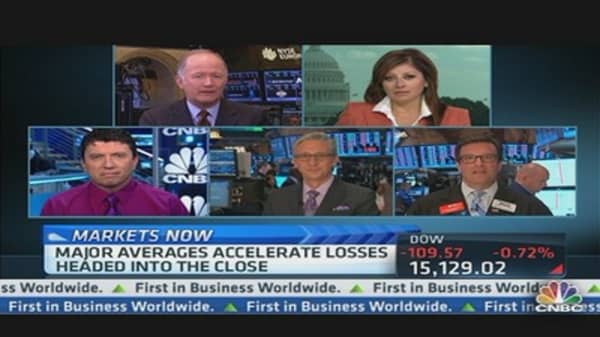Investors are nursing losses of up to 9 per cent on Apple's record-breaking $17 billion bond offering, less than six weeks after the securities landed in their portfolios.
The technology giant tapped the white-hot bond market for the largest debt fundraising to date on April 30, but a sharp turn in interest rates has caused a sell-off in corporate bonds and wiped hundreds of millions of dollars off the value of the offering.
(Read More: Record Outflows From US Junk Bond Funds)
Apple sold $3 billion of bonds maturing in 2043, locking in a low interest rate of 3.9 per cent for the next 30 years, but the market price of these bonds had fallen to 90.36 per cent of face value in late trading on Monday, according to Trace data.
Investors in the offering paid 99.418 per cent of face value for the new bonds, but institutional and retail demand was so high that they traded as high as 101.97 in the secondary market.




